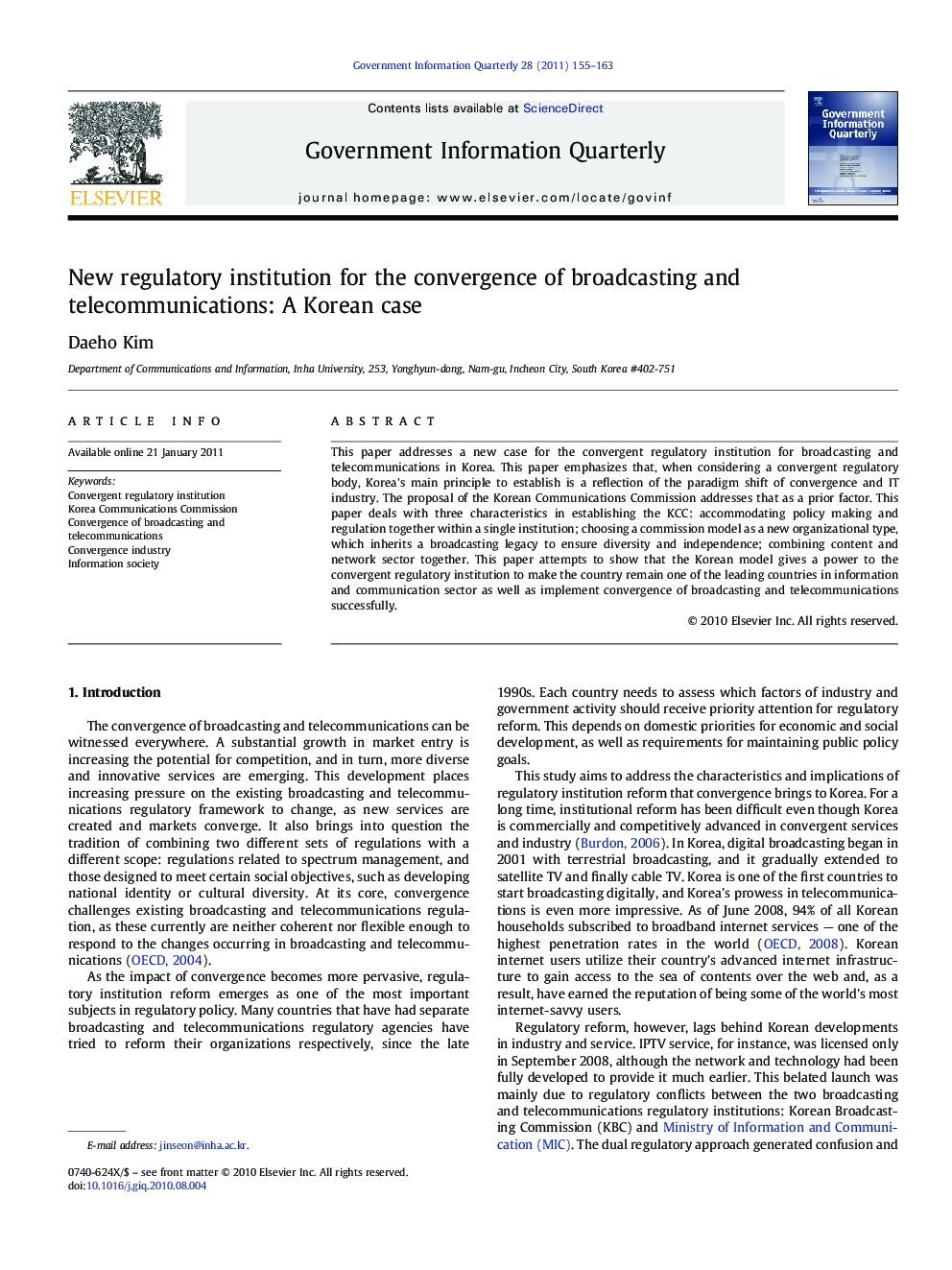| Article ID | Journal | Published Year | Pages | File Type |
|---|---|---|---|---|
| 1024611 | Government Information Quarterly | 2011 | 9 Pages |
This paper addresses a new case for the convergent regulatory institution for broadcasting and telecommunications in Korea. This paper emphasizes that, when considering a convergent regulatory body, Korea's main principle to establish is a reflection of the paradigm shift of convergence and IT industry. The proposal of the Korean Communications Commission addresses that as a prior factor. This paper deals with three characteristics in establishing the KCC: accommodating policy making and regulation together within a single institution; choosing a commission model as a new organizational type, which inherits a broadcasting legacy to ensure diversity and independence; combining content and network sector together. This paper attempts to show that the Korean model gives a power to the convergent regulatory institution to make the country remain one of the leading countries in information and communication sector as well as implement convergence of broadcasting and telecommunications successfully.
Research Highlights► Korean government established a convergent regulatory institution in order to secure value of competition and public interest in the convergent industry. ► The Korea Communications Commission shows unique model. ► The reform of a regulatory institution makes sure to link convergent services, IT and broadcasting industry, and information society infrastructure as a demand–supply–infra cycle.
